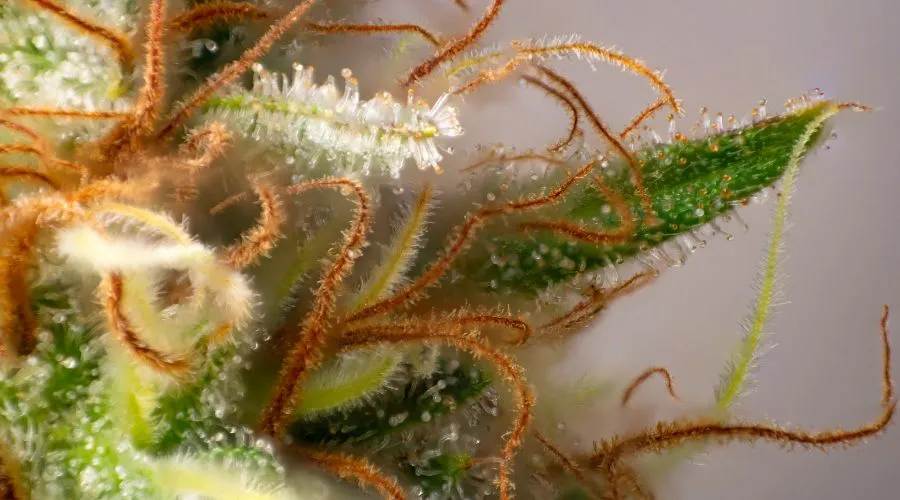Eucalyptol: What You Need To Know About This Cannabis Terpene
Table of Contents
Terpenes are the natural compounds responsible for the diverse scents in plants like cannabis.
One of them is eucalyptol, which has been associated with the smell of eucalyptus and is known to be relaxing. In this article, we’ll take an informative stroll through the world of eucalyptol, looking at what it is, what it does in cannabis, and why it’s interesting.
Whether you’re a seasoned cannabis enthusiast or just a curious soul, eucalyptol will take you on an interesting trip.

What Are Terpenes?
Terpenes are natural chemical compounds that are found in plants and some animals.
They are what give different types of plants their different smells, tastes, and colors.
In the case of cannabis, terpenes are a big part of what gives different strains their own smells and tastes.
Even though we don’t know exactly what role terpenes play in the human body, they are becoming more and more known as important factors in classifying cannabis products, as well as figuring out how they will affect people.
The most popular theory says that a strain’s terpene profile and cannabinoid content —such as THC and CBD — work together to create effects that are unique to that strain.
This helps explain why strains with similar THC levels can result in very different experiences.
While terpenes typically don’t induce a traditional sense of being “high,” certain terpenes can affect the brain in ways that might lead to such sensations.
They are thought to modify the effects of THC, the main cannabinoid that causes psychoactivity.

This finding questions the idea that you should choose a strain based on how much THC it has. Instead, experts say that the focus should be on specific terpene ratios to get the desired benefits.
Though ongoing research shows promising links between some terpenes and mental health conditions — like anxiety and depression —, it’s important to remember that our understanding of terpenes is still in its early stages.
We need to do more thorough research to find out what their full potential is in the cannabis world and beyond.
What Is The Entourage Effect?
The “Entourage Effect” is an essential concept in the world of cannabis products.
It shows how important it is for the chemicals in the cannabis plant to work together as a whole.
Whether they are phytocannabinoids or terpenes, this concept states that these compounds work best when they work together.
It is thought that this relationship between the two will have a more complete effect on a person’s health, with benefits ranging from reduced anxiety to decreased inflammation.

At its core, the Entourage Effect happens when cannabinoids combine with a wide range of other substances instead of being alone.
Cannabis has a lot of terpenes, which give it its unique smell and may also be good for your health.
For example, the terpene limonene — which is found in lemon leaves — is known to improve mood when paired with CBD.
Pinene — which comes from pine resin — may make you feel more alert. CBD’s ability to control the psychoactive effects of THC is also very important for a healthy experience.
As studies continue to figure out the details of these interactions, it opens the door to a wide range of cannabis products and ways to improve health.
What Is Eucalyptol?
Eucalyptol terpene — also known as cineole — is a natural organic and colorless liquid compound with a minty aroma and a spicy taste.
Eucalyptol is found in the essential oils of various plants, but it is most commonly associated with eucalyptus trees, which is where it got its name.
These trees are native to Australia, but they are now grown in many other countries for their medicinal properties.
Eucalyptol has been used for centuries in traditional medicine to treat various respiratory conditions such as coughs, colds, and congestion.
It has expectorant and decongestant properties, which help to thin mucus and make breathing easier.

Due to its pleasant aroma and therapeutic properties, eucalyptol is also widely used in the fragrance and flavoring industries.
It can be found in a variety of products such as mouthwashes, toothpastes, and cosmetics.
However, it is important to note that eucalyptol can cause allergic reactions in some individuals, and excessive doses can be toxic.
In cannabis, this terpene not only contributes to its overall aroma but also offers potential therapeutic benefits.
Research suggests that eucalyptol may have anti-inflammatory, pain-relieving, and antimicrobial properties. It may also contribute to the relaxation and calming effects often associated with certain cannabis strains.
The concentration of eucalyptol in cannabis strains can vary, and its effects may differ depending on other terpenes and cannabinoids present.
Individuals seeking specific therapeutic effects should consult a knowledgeable budtender or medical professional.
Chemical Structure of Eucalyptol
Eucalyptol terpene — also known as 1,8-cineole — is a natural organic compound that belongs to the monoterpene class.
The chemical structure of eucalyptol consists of a bicyclic structure, containing a cyclohexane ring fused with a cyclopropane ring. It has a molecular formula of C10H18O and a molar mass of 154.25 g/mol.
Eucalyptol’s unique solubility characteristics play a crucial role in its versatile applications. While it is relatively insoluble in water, it readily dissolves in organic solvents, a key factor contributing to its versatility.
This distinctive solubility profile facilitates the efficient incorporation of eucalyptol into pharmaceuticals, cosmetics, and industrial products.
Due to its frequent use in the pharmaceutical industry, eucalyptol can fully harness its potent medicinal properties, which encompass antimicrobial, analgesic, anti-inflammatory, and anticancer effects.
This combination of solubility attributes and medicinal prowess has firmly established eucalyptol as a valuable and multifunctional compound with diverse uses across various industries.

What Are the Effects of Eucalyptol Terpene?
Eucalyptol is a darling of the food industry, often used to add a minty aftertaste to products like mouthwash and cough drops.
However, it’s also a potent treatment for a range of medical ailments.
Research and clinical trials have shown that eucalyptol can:
- Relieve sinus and nasal congestion
- Improve breathing issues like asthma
- Offer some pain relief
- Demonstrates potential as an anti-inflammatory and antiseptic
- Enhance cognitive function in older individuals when used consistently
A study revealed that eucalyptol oils effectively treat rhinosinusitis — a common sinus infection — offering a safe, affordable, and non-pharmaceutical treatment option.
Another study showed that inhaling eucalyptus oil had a measurable impact on pain and inflammation, particularly in those recovering from knee replacement operations.
A recent 2020 study found that inhaling eucalyptol significantly improved the cognitive function of Japanese nursing home residents, even when administered in doses too small to detect consciously.
Eucalyptol is generally safe and free of side effects when used correctly. However, excessive use of eucalyptus oil — which contains eucalyptol — can lead to stomach discomfort, dizziness, muscle weakness, drowsiness, and more severe symptoms like seizures and coma.
These extreme reactions are rare and typically occur when large and consistent amounts of eucalyptus oil are consumed.

What Cannabis Strains Are High In Eucalyptol?
Strains high in eucalyptol not only contain this beneficial terpene but also a variety of other cannabinoids and terpenes. This diverse mix allows users to tap into the entourage effect and maximize the benefits of their medicine.
Here are some top picks for eucalyptol-rich strains:
- Headband
- Girl Scout Cookies
- Dutch Treat
- Super Silver Haze
- Girl Scout Cookies
- London Pound Cake
- Arjan’s Strawberry Haze
- Ace of Spades
- Jolly Rancher
- Bubba Kush
- Headband
- GMO Cookies
Where Can You Find Eucalyptol Besides Cannabis?

While eucalyptol is often associated with cannabis, it has a much broader presence in nature and everyday products.
Some of the notable sources of eucalyptol include:
- Basil
- Black Pepper
- Cinnamon
- Clove
- Eucalyptus
- Oregano
- Rosemary
- Tea Tree
- Bay Leaves
- Lavender
- Mint
- Sage
With its versatile chemical structure and a wide array of applications, eucalyptol showcases the fascinating complexity of natural compounds.
Whether it’s serving as a part of a plant’s defense mechanism or as an antibacterial ingredient in everyday products, eucalyptol highlights the diverse roles such compounds play in our lives.
Is Eucalyptol a terpene you’d like to explore in cannabis? We’d love to hear about your cannabis experience or questions. Leave us a comment!
Get Your Medical Cannabis Card Online and in Minutes
Back to Directory


